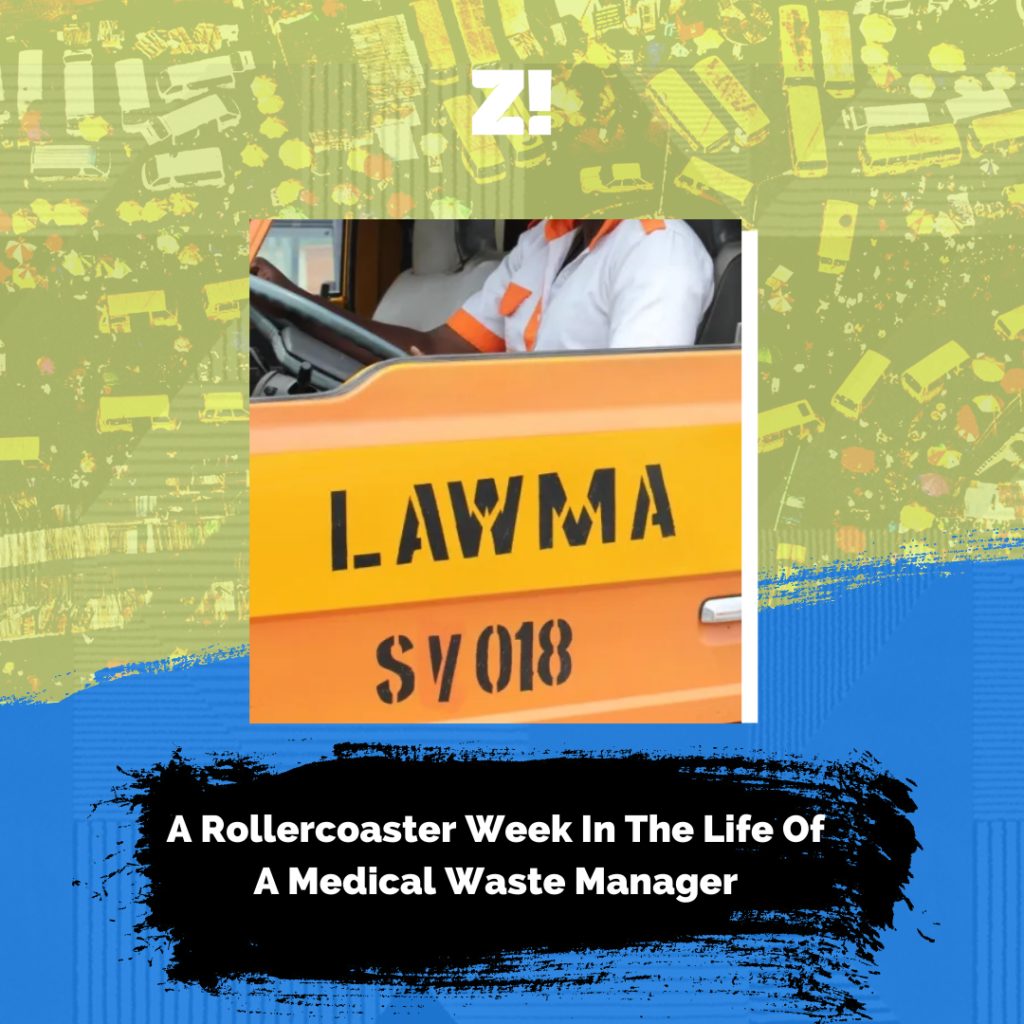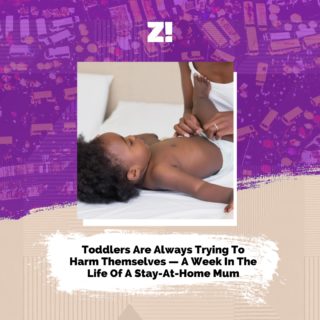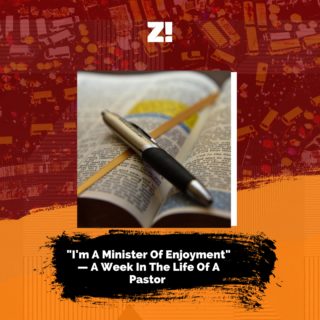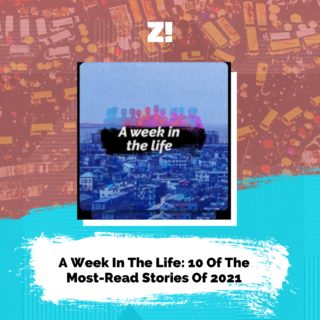A Week in the Life” is a weekly Zikoko series that explores the working-class struggles of Nigerians. It captures the very spirit of what it means to hustle in Nigeria and puts you in the shoes of the subject for a week.
The subject of today’s “A Week In The Life” packs medical waste for a living. Medical waste includes blood products, placentas, used needles and syringes and other waste products used in medical facilities. He talks about struggling with motivation to work, the dangers of packing medical waste and being treated poorly by his employer.

TUESDAY:
I’m not in the mood to resume work today. Although I didn’t work yesterday, I still don’t feel rested. One minute I had the whole of Monday to myself, the next, it was 5 p.m.
Everyone knows that the evening of your off day signifies the end of enjoyment. A little sleep, a little slumber and you’re back to work the next day.
Unfortunately, the next day has become today, and I’m not happy about it.
A typical workday lasts nine hours, plus an extra hour for the journey to and from my house. I work for three or four days from 9 a.m. to 6 p.m. With this schedule, I can still find time to do other side hustle and jama jama to make money. But it’s not always that straightforward.
There’s the occasional weekend work, which can be tiring. Then there’s dealing with the hazards of the job like needle pricks and falling sick.
There’s also having to interact with difficult and demanding hospital staff, which makes everything blurry.
Suddenly, the job goes from “simple” cleaning of hospitals and collection of medical waste to managing people.
A perfect example of how this job goes from zero to a hundred: last week, my junior colleague and I went to one private hospital to pack waste. We were supposed to be done in 15 mins, but we were still there after 45 mins, so my colleague shouted at them to hurry up. The next thing, they threatened to report us to our supervisor. And because the customer is always right, I had to step in to appease and negotiate a middle ground. Although we were in the right, we still had to be diplomatic.
Our first stop for today is that same facility. I had better start preparing for work so that we don’t run into any issues with them today.
God knows that I’m not in the mood to play nice.
WEDNESDAY:
When I started work today, I wasn’t expecting to get pricked by a used needle. At one of our regular stops, the hospital staff didn’t tell me that they had packed used needles alongside other medical waste. And because one aspect of the job involves weighing the waste to determine the cost, I picked up the nylon without thinking.
The next thing I felt was a sudden sharp sensation in my hand. At first, I was quiet, the next minute, I started screaming at the staff, asking if they were trying to kill me.
The worst part is that when my oga heard what happened, he just told me pele and asked me to treat myself and be well before tomorrow.
I know the protocol for handling such cases is O.Y.O — on your own — but his reply made me feel terrible. He couldn’t even offer small support towards my treatment.
I bought a “flusher” [Editor’s note: this is a cocktail of drugs believed to “clean” the system] from the local chemist, but when the hand started swelling, I went to see a nurse near my house. Although she gave me pain relief drugs and Ampiclox Beecham, I still bought agbo to add to the power.
When the pain became unbearable, I started thinking about my life. In my 10 years of working this job, I’ve not gotten many benefits. I’ve had to pay out of pocket for everything; from Izal to clean our truck to hand gloves for handling waste, to the soap we use for bathing after a day’s job.
I’ve always swallowed my complaints because I have a family to look after. When my boss told me I had to cover three local governments, I didn’t complain. When they told me they were increasing the facilities I cover from about 100 to 138, I didn’t complain. After they added another role to my job without pay, I still didn’t complain.
I guess that saying is true: it’s how you lay your bed that you lie on it. I blame myself for not talking out before now.
THURSDAY:
I resumed work today with my swollen hand. The only thing I heard after protesting not to work was, “You know we can’t leave the hospitals dirty. Your work is essential to keeping the hospitals clean.”
In my mind, I just kept asking, “If I’m so essential, why don’t our bosses rate us?” Outwardly, I just smiled and changed into my work clothes.
Today’s run was a bit different. Because of my hand, I was in the passenger’s seat instead of the driver’s, so I had time to observe.
At our first stop, I noticed the staff were frowning when they saw our vehicle. In my head, I thought facility staff were always happy to see us because we made their lives easier.
In our next stop, which was a general hospital, I observed that we spent a lot of time waiting for someone to attend to us. And after they did, we still ended up fighting with them for not properly disposing of their waste.
At our third stop, I noticed my colleague was about to eat without washing his hands. He must have forgotten he was handling the waste today and not in the passenger’s seat as usual. I quickly reminded him to wash his hand before he’d kill himself.
Our last stop was in Ikorodu, where we dumped all the waste we had packed for the day. As I watched the people in the facility burn the waste, a part of me hoped they could extend the same treatment to our wicked leaders and employers.
On my way home, as my hand kept burning. I found myself considering getting another job. However, a voice in my head kept on asking me: where will you see it?
Check back every Tuesday by 9 am for more “A Week In The Life ” goodness, and if you would like to be featured or you know anyone who fits the profile, fill this form.




